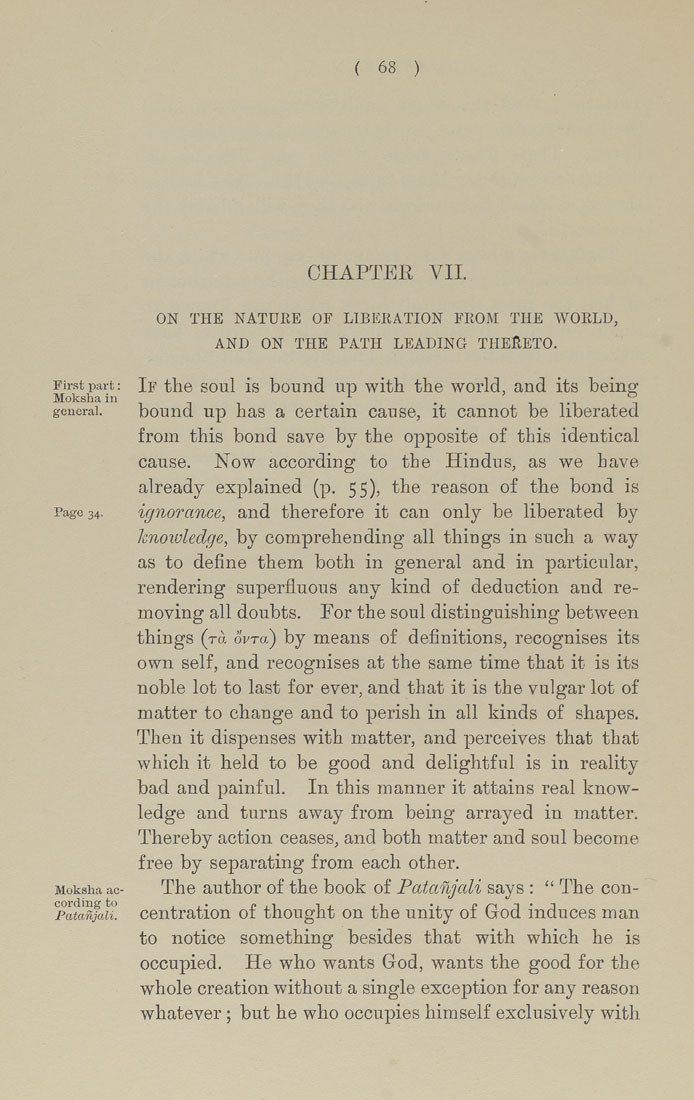Bīrūnī, Muḥammad ibn Aḥmad, Alberuni's India (v. 1)
(London : Kegan Paul, Trench, Trübner & Co., 1910.)
|
||
|
|
|
|
| Page 68 |

CHAPTER VIL ON the nature OF LIBERATION FROM THE WORLD, AND ON THE PATH LEADING THERETO. First part: Moksha in general. Page 34. Moksha ac¬ cording to Patanjali. If the soul is bound up with the world, and its being bound up has a certain cause, it cannot be liberated from this bond save by the opposite of this identical cause. Now according to the Hindus, as we have already explained (p. 55), the reason of the bond is ignorance, and therefore it can only be liberated by knowledge, by comprehending all things in such a way as to define them both in general and in particular, rendering superfluous any kind of deduction and re¬ moving all doubts. For the soul distinguishing between things (rex ovra) by means of definitions, recognises its own self, and recognises at the same time that it is its noble lot to last for ever, and that it is the vulgar lot of matter to change and to perish in all kinds of shapes. Then it dispenses with matter, and perceives that that which it held to be good and delightful is in reality bad and painful. In this manner it attains real know¬ ledge and turns away from being arrayed in matter. Thereby action ceases, and both matter and soul become free by separating from each other. The author of the book of Patanjali says : " The con¬ centration of thought on the unity of God induces man to notice something besides that with which he is occupied. He who wants God, wants the good for the whole creation without a single exception for any reason whatever; but he who occupies himself exclusively with |
| Page 68 |







